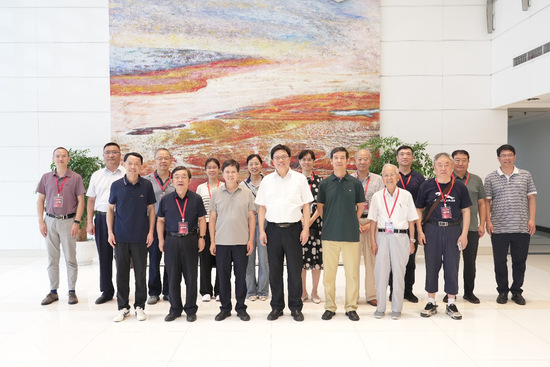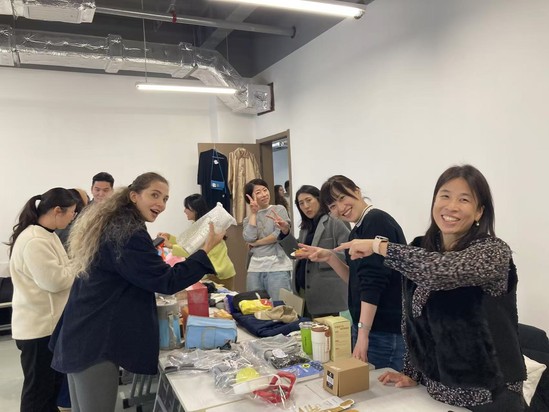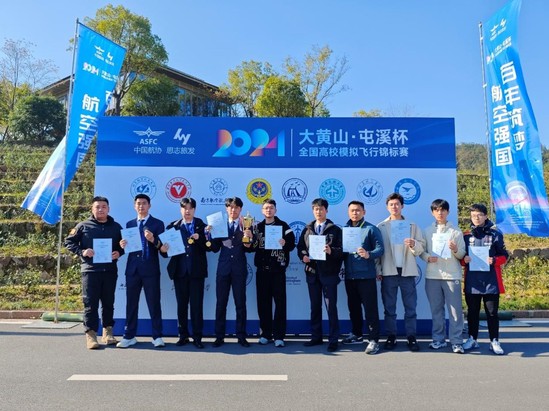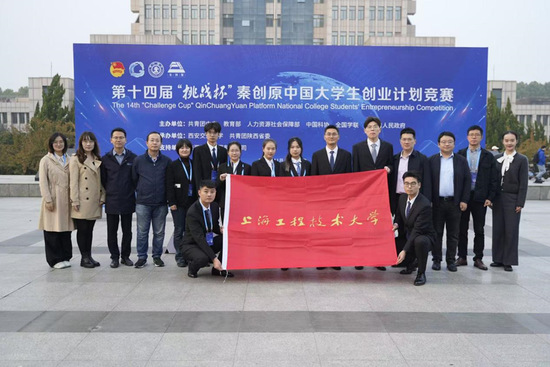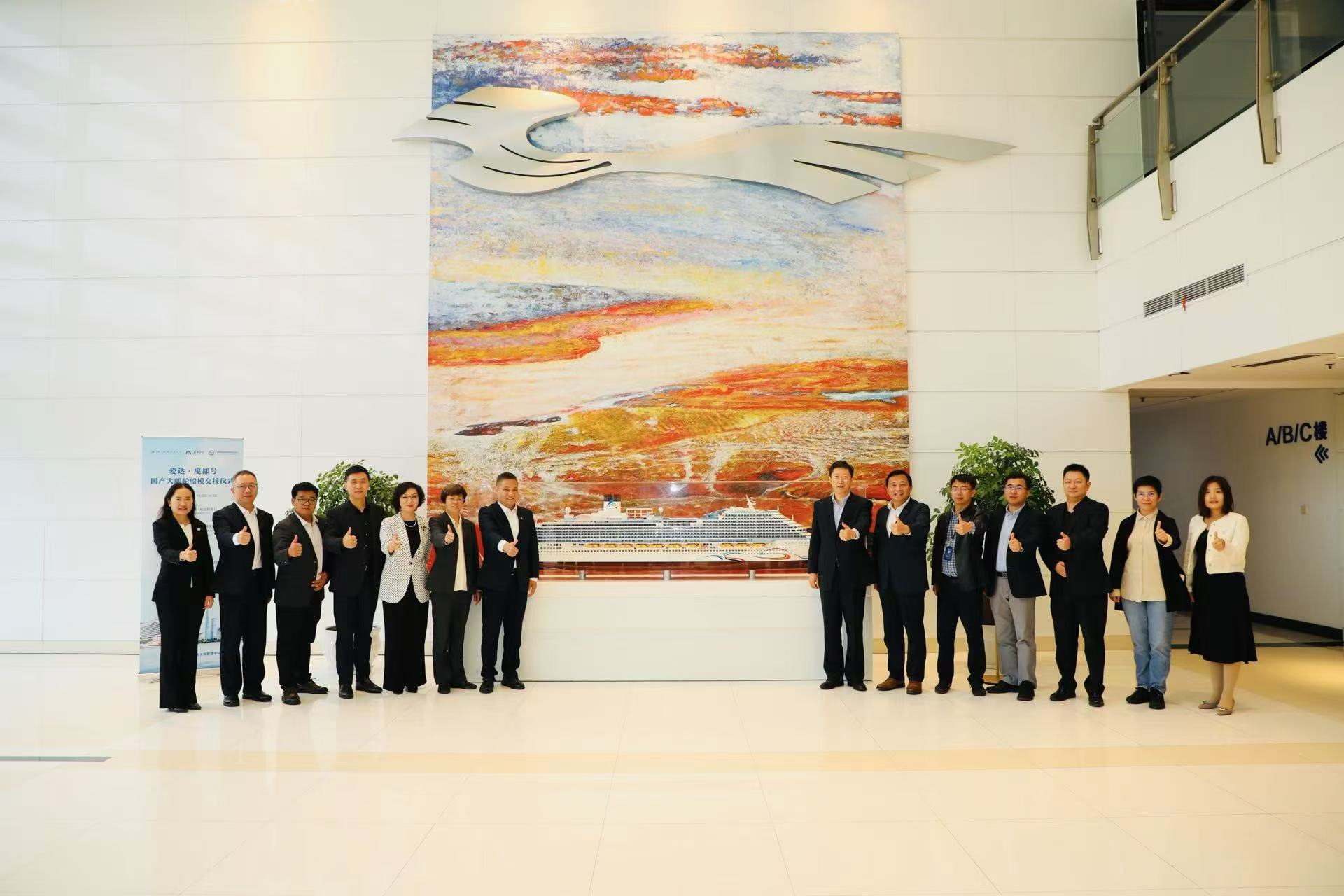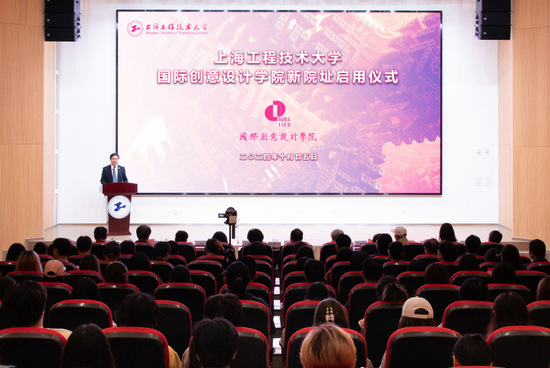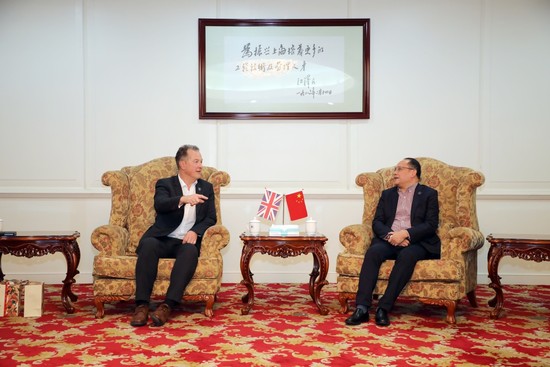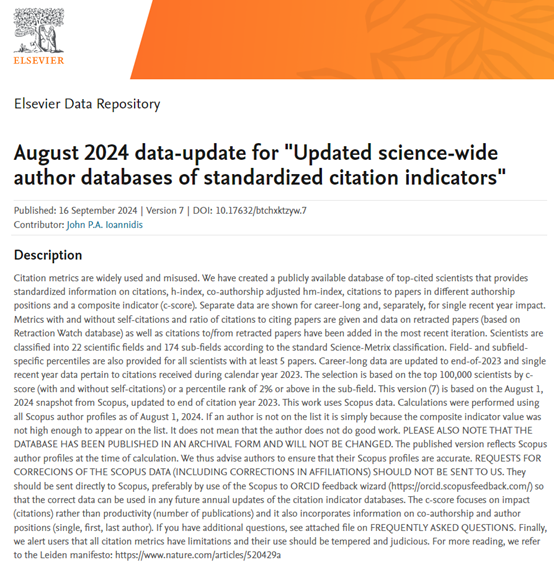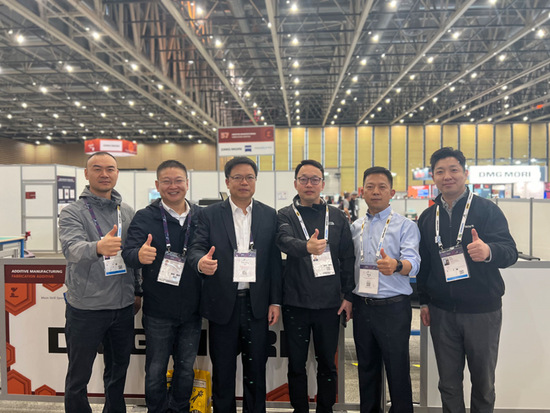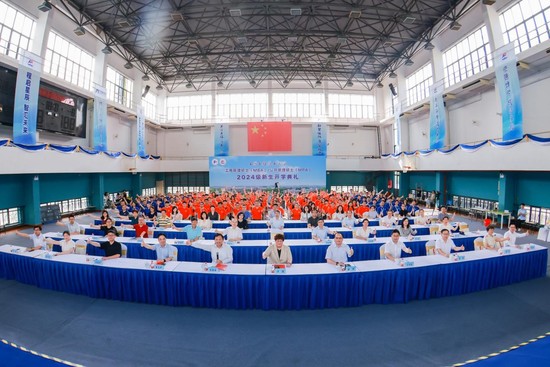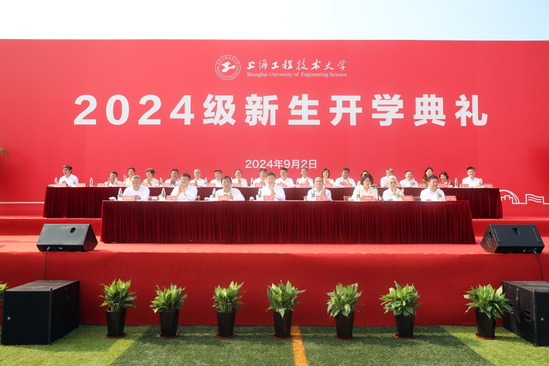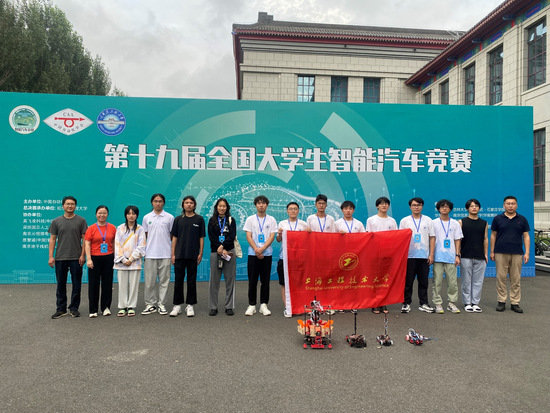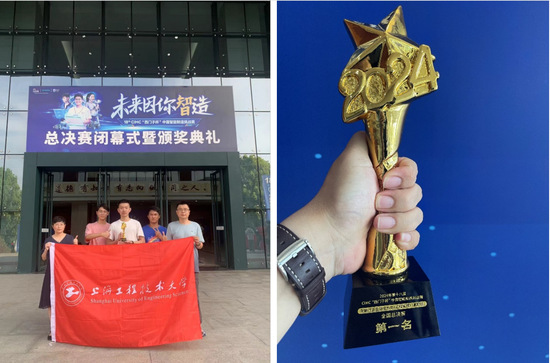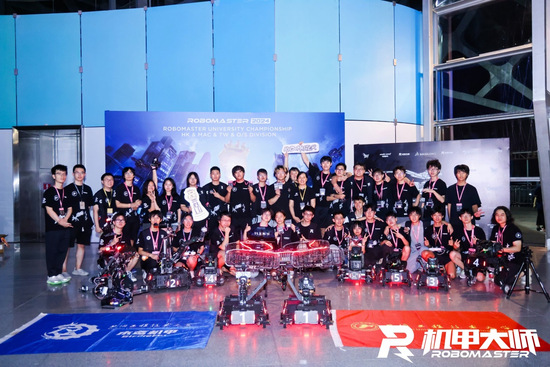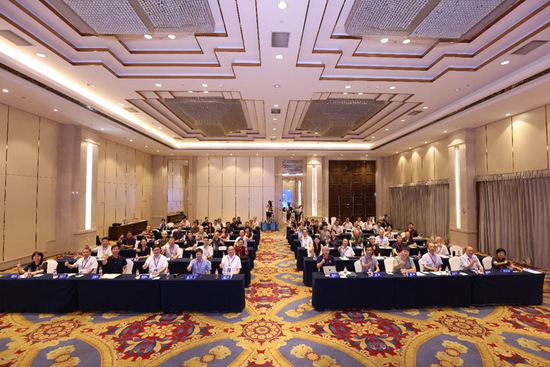

In today's era of rapid AI development, how should engineering education accreditation be conducted? On August 14th, at the 2024 Mid-Year Working Conference and Expert Seminar of the Electronics and Electrical Engineering Specialty Accreditation Committee of China Engineering Education Accreditation Association held at SUES, Zheng Nanning, academician of Chinese Academy of Engineering and chairman of the special committee, proposed that AI should be increasingly integrated into all aspects of education and teaching to continuously enhance the quality of talent cultivation in China.
The conference was hosted by School of Electronic and Electrical Engineering and conducted both online and offline. More than 50 committee members, academic committee members, expert group leaders, etc., participated in the offline conference, while over 200 experts attended the online session.
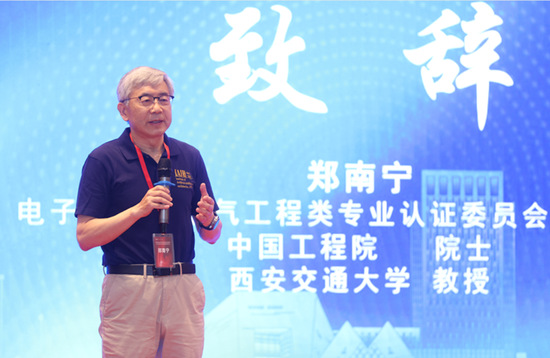
At the conference, Academician Zheng Nanning, representing the special committee, expressed gratitude to the Shanghai Municipal Education Commission for their emphasis on the conference and thanked SUES for its strong support in hosting the event. He indicated that with the rapid development of AI, engineering education accreditation is about to enter a new stage of development, and he looks forward to working with various universities to jointly improve the quality of education and teaching. Academician Zheng Nanning also delivered an invited report titled Commonsense Reasoning and Visual Concept Learning.
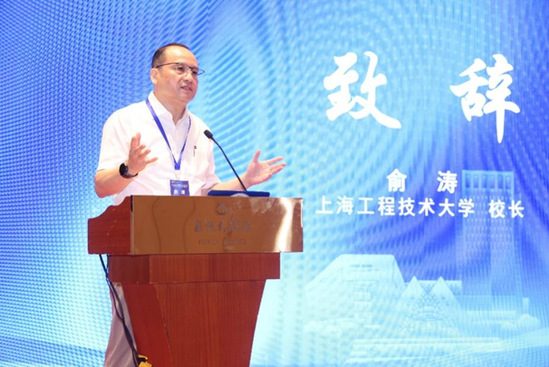
President Yu Tao of SUES delivered a welcome address on behalf of SUES. He first expressed gratitude to the special committee for recognizing SUES and providing the opportunity to host the conference, and extended a warm welcome to all experts and representatives attending. President Yu introduced the basic situation, educational characteristics, and the progress of engineering education accreditation at the University, sharing his thoughts on leading university quality culture development through program accreditation. He hopes that SUES, together with the special committee and related universities, will further strengthen cooperation and exchanges to make greater contributions to the development of program accreditation.
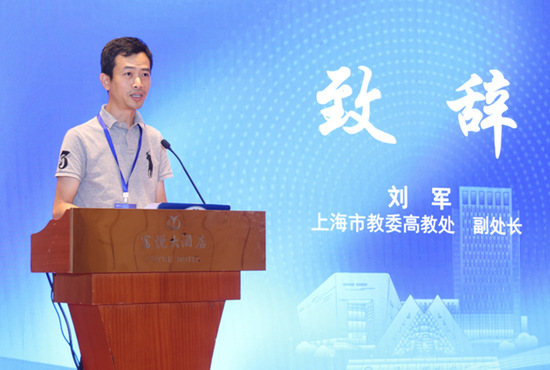
Liu Jun, Deputy Director of Higher Education Division of Shanghai Municipal Education Commission, congratulated the successful convening of the conference and introduced the overall situation of engineering education accreditation in Shanghai’s universities. He expressed the hope that, as a pilot construction unit for high-level local application-oriented universities, SUES will continue to promote the high-quality development of higher education and make positive contributions to the cultivation of application-oriented talents.
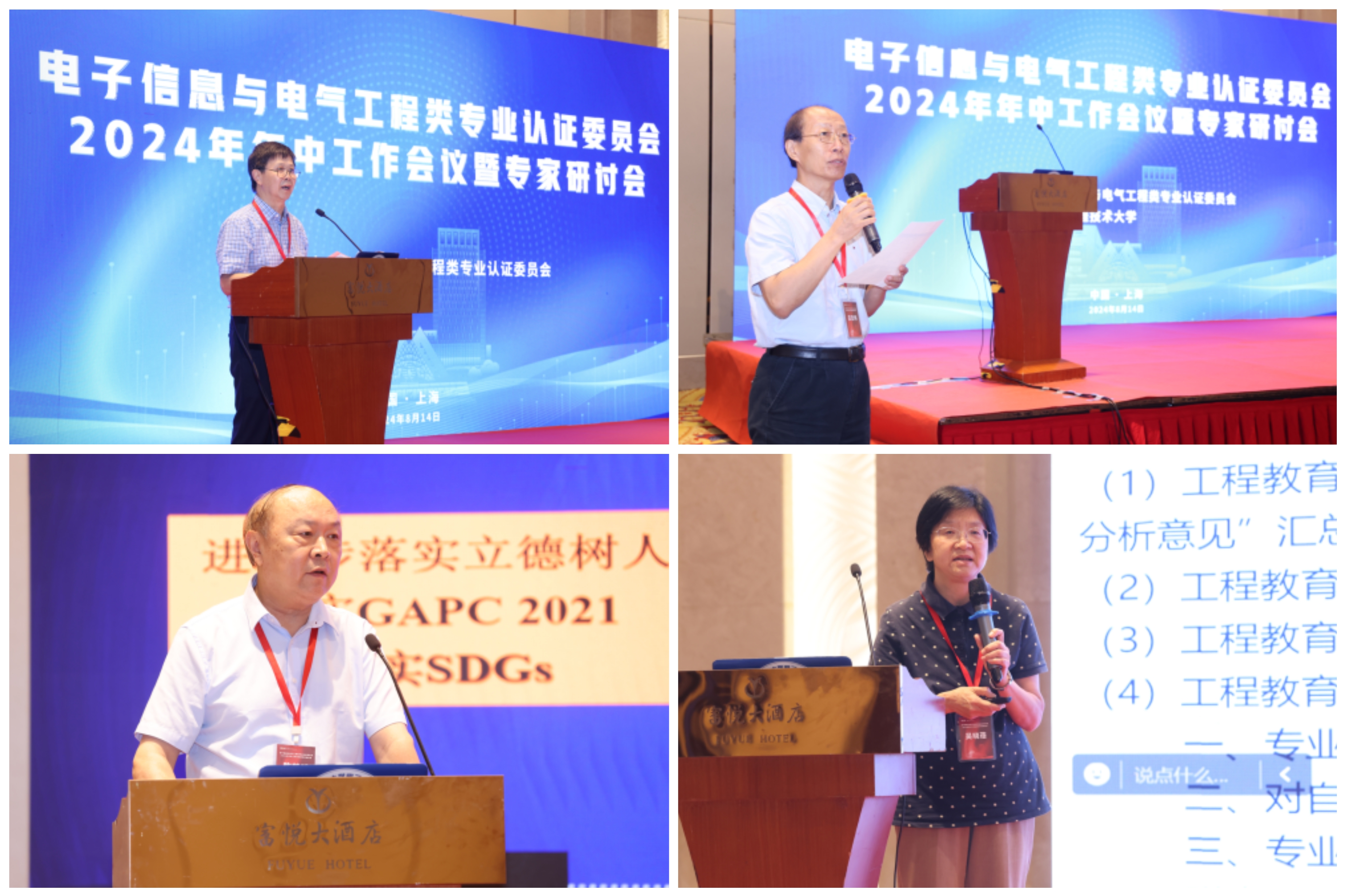
The subsequent seminar was presided over by Professor Zhang Jing, vice chairman of the special committee. Professor Chen Heming from Nanjing University of Posts and Telecommunications introduced the revision of engineering education accreditation standards (2024), and Professor Wu Xiaobei from Nanjing University of Science and Technology explained how to closely follow the standards and write various reports with high quality.

The afternoon session of the special committee working conference was presided over by Professor Lv Zhiwei, vice chairman of the special committee. The self-evaluation reports were reviewed and review comments were provided. The experts discussed the accreditation work of the special committee, with lively discussions and diverse opinions. Through this conference, the participating experts gained new understanding of the changes in accreditation standards, which will play a catalytic role in improving the quality of accreditation work.
Vice President Xia Chunming of SUES attended the conference, along with directors from relevant departments and schools, as well as representatives of faculty and students.
Before the conference, some experts visited the laboratories of School of Electronic and Electrical Engineering, School of Air Transportation (School of Flight), and School of Urban Railway Transportation.
